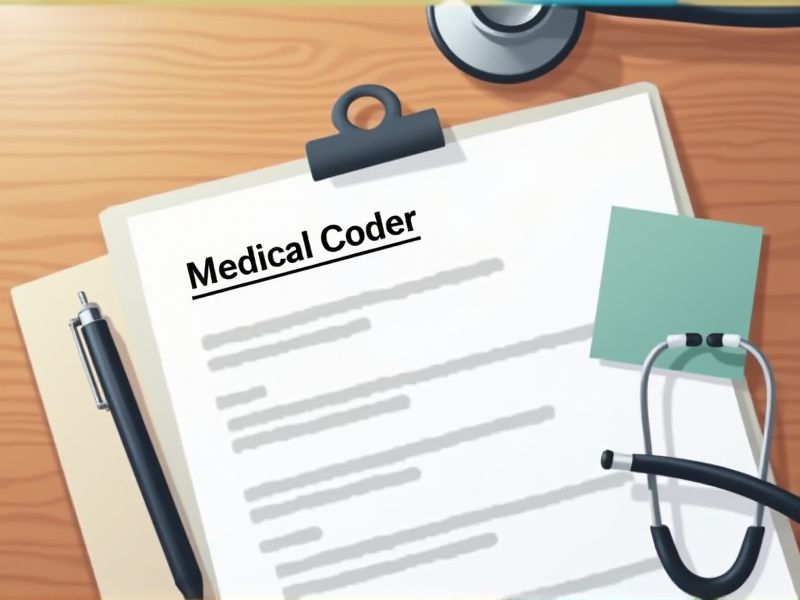
The healthcare industry relies on accurate medical billing and coding to ensure proper patient care and streamlined operations. Certifications in medical coding and billing enhance professional credibility, resulting in better employment prospects and career advancement. Knowledge of coding systems and regulations is crucial to ensure compliance and minimize errors. Key certifications for medical coders and billers include CPC, CCA, and CCS.
AAPC Certified Professional Coder (CPC)
The AAPC Certified Professional Coder (CPC) credential ensures a standardized understanding of medical coding protocols, leading to accurate billing processes. With a CPC certification, medical coders are better equipped to navigate complex regulations, reducing coding and billing errors. Employers prioritize CPC-certified professionals, as it signifies adherence to essential coding standards. The certification can result in higher salary prospects due to the increased competency and reliability it assures.
AHIMA Certified Coding Specialist (CCS)
The AHIMA Certified Coding Specialist (CCS) credential validates expertise in medical coding, ensuring accuracy in translating healthcare diagnoses and procedures into universal codes. This certification increases the likelihood of proper reimbursement from insurance companies by ensuring that billing practices meet industry standards. Healthcare facilities rely on accurately coded data for quality patient care management and financial planning, making the CCS designation crucial. Possessing the CCS credential can enhance a professional's job prospects and credibility in a competitive job market.
AAPC Certified Inpatient Coder (CIC)
The AAPC Certified Inpatient Coder (CIC) credential validates a coder's expertise in hospital-based inpatient coding, ensuring accurate coding practices for complex diagnoses and procedures. Employers value CIC certification because it demonstrates proficiency in the ICD-10-CM and ICD-10-PCS coding systems used in inpatient settings. Certified coders can improve hospital revenue cycle efficiency by reducing coding errors and facilitating proper reimbursement. Medical coders and billers with CIC certification enhance their career prospects and increase their earning potential by showcasing their specialized skills.
AAPC Certified Outpatient Coder (COC)
AAPC Certified Outpatient Coder (COC) enhances the ability of medical coders and billers to accurately interpret outpatient claims data, reducing billing errors. Improved accuracy in coding directly correlates with optimized reimbursement processes, ensuring healthcare providers receive appropriate compensation. Knowledge gained through COC certification helps coders navigate complex regulations, which reduces the risk of compliance issues. Employers may prefer or require COC certification, increasing job opportunities and career advancement for medical coders and billers.
AAPC Certified Professional Biller (CPB)
An AAPC Certified Professional Biller (CPB) validates expertise in the billing cycle, improving efficiency in managing accounts receivable and reducing claim denials. It provides specialized knowledge of compliance and regulations, ensuring adherence to healthcare laws and minimizing legal risks. CPB certification enhances credibility, fostering trust with employers and clients, and often correlates with higher earning potential. In a competitive job market, possessing a CPB can differentiate an individual, indicating proficiency in both coding and billing, which streamlines healthcare revenue management processes.
AHIMA Certified Coding Associate (CCA)
Achieving the AHIMA Certified Coding Associate (CCA) credential can enhance a medical coder's credibility and proficiency, as it signifies a standardized level of knowledge in medical coding practices. This certification aids employers in confidently assessing a candidate's coding competency, which potentially elevates job prospects in a competitive healthcare industry. With medical billing and coding intricacies, a CCA certification equips professionals with the necessary skills to accurately translate medical records into standardized codes, directly impacting billing efficiency and compliance. Healthcare organizations often seek certified coders to ensure reduced risk of costly errors in insurance claims processing and reimbursement cycles.
AHIMA Certified Documentation Improvement Practitioner (CDIP)
The AHIMA Certified Documentation Improvement Practitioner (CDIP) credential enhances the accuracy of documentation, which directly impacts reimbursement processes for medical coders and billers. Improved documentation quality reduces the risk of claim denials by ensuring compliance with regulatory standards. It also facilitates better communication among healthcare teams, leading to efficient billing operations. The credential signals a higher proficiency level, increasing job prospects in the ever-evolving healthcare documentation landscape.
AAPC Certified Medical Reimbursement Specialist (CMRS)
Having an AAPC Certified Medical Reimbursement Specialist (CMRS) certification signals a professional's proficiency in navigating complex billing processes and insurance protocols, enhancing job effectiveness for medical coders and billers. Certification equips individuals with up-to-date knowledge on compliance and regulatory changes, reducing errors and boosting reimbursement rates for healthcare providers. Employers often prioritize candidates with specialized credentials like CMRS, as it demonstrates a commitment to the field and a high level of expertise. Patients benefit from accurate billing practices, minimizing disputes and ensuring smoother financial transactions within healthcare settings.
AAPC Certified Professional Medical Auditor (CPMA)
AAPC Certified Professional Medical Auditors (CPMAs) ensure compliance with healthcare regulations by verifying the accuracy of medical coding and billing, which impacts revenue integrity. Inaccurate coding can lead to claim denials or legal ramifications, causing a financial burden for healthcare providers. CPMAs provide an additional layer of scrutiny, minimizing errors and optimizing reimbursement processes. Increased scrutiny in healthcare audits necessitates CPMAs to safeguard against fraud and maintain industry standards.
HFMA Certified Revenue Cycle Representative (CRCR)
Having the HFMA Certified Revenue Cycle Representative (CRCR) certification enhances a medical coder and biller's understanding of the full revenue cycle, which directly impacts their efficiency and accuracy in coding and billing processes. It provides in-depth knowledge of financial operations within healthcare systems, leading to improved management of claims and reimbursement. The certification raises their proficiency in handling denials and appeals, which can increase revenue for healthcare facilities. Earning the CRCR credential also elevates a coder or biller's professional standing, potentially opening doors to career advancement opportunities.
Summary
By obtaining certifications in medical coding and billing, you can enhance your credibility and job prospects. Certification often leads to better salary packages due to recognized expertise. Employers may prefer hiring certified professionals, potentially increasing job security. Holding certifications can also lead to more career advancement opportunities within the healthcare field.
